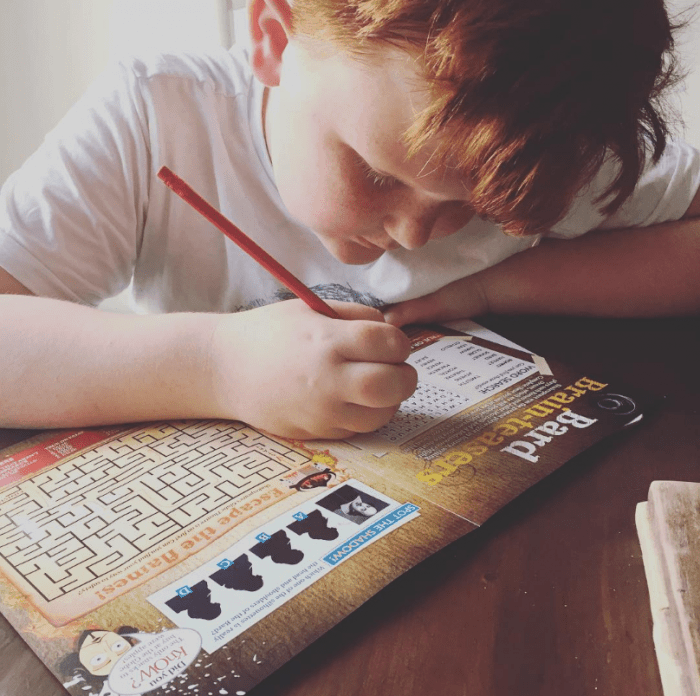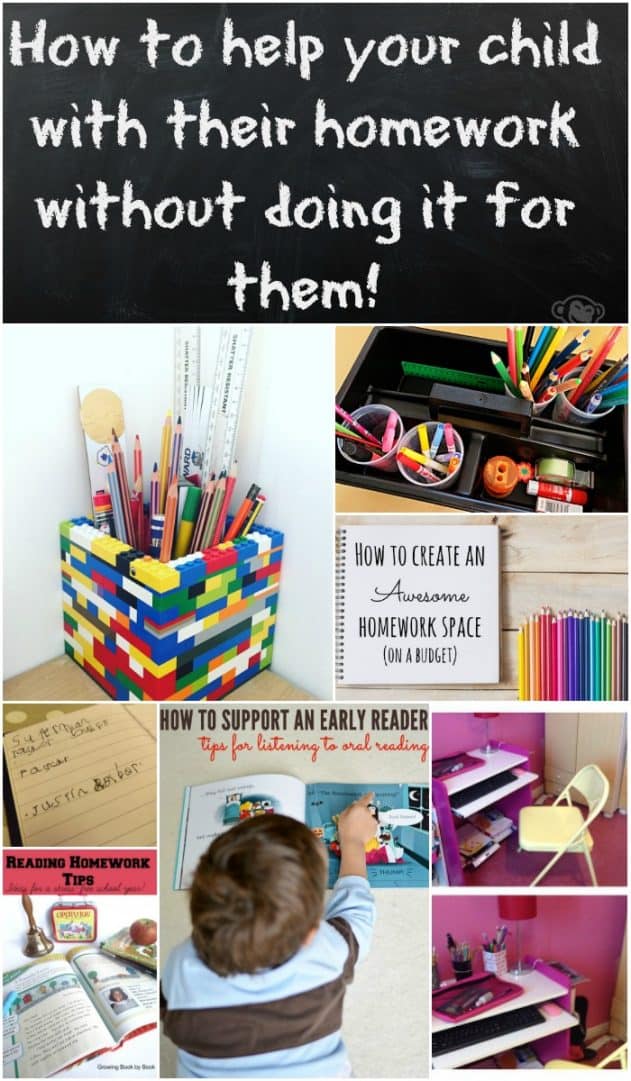
Miss Frugal’s school teach some areas of the maths curriculum electronically – meaning that they assign the pupils work to do on a laptop and the children do the lesson on the laptop (both at school or at home) and then complete a test on the module which they have to get a set score in order to move on.
Whilst at school they can ask the teacher to clarify what they don’t understand but for modules set as homework (1-2 a week) it’s not so easy as the work has to be completed to ensure that the homework shows as done (detentions are given if not) but it’s quite hard for some children to pick up new things just by reading through an on-screen lesson. I know that I learn much better when someone actually tells me and shows me how something should be done and I think Miss Frugal is the same.
So I started to look at the lessons that didn’t click with her and would learn them myself, using a lot of help from Google sometimes and once I knew what I was talking about, I’d teach it to her before letting her do the test herself. We had great success doing this but I was conscious that it wasn’t the way the school intended the learning to be delivered so I gave them a call and had a quick chat with her maths teacher to make sure she was OK with the way we were doing things.
It turned out that it was not only OK, it was actually what the teachers hoped that parents would be doing! She went on to tell me that often teachers aren’t given enough time to cater their lessons to everyone and even with different streams for ability, a class still has very wide ranging requirements. In order for the children to learn and perform to the best of their ability they do need to do some work at home and they do need the support of parents to help them.
I’ve always helped my two with homework where they’ve asked me too but this just reassured me that I was doing the right thing and I wanted to share it with you in case you have children of homework age and were unsure of just how much support you can give them. The key is not to do the work for them but if it’s something that they’re struggling with then you can help them to understand it better by learning it yourself first and then teaching them in a way they will understand.
At the last parents night we went to, Miss Frugal’s teacher said she had ‘Smashed’ all of her maths exams and that she seemed to have a much greater understanding of the subject that she had previously. Coincidence?

There’s lots of other ways to help your children with their homework too and my biggest tip is to make sure that they have a great homework space that they can use when they want to. If you want to see our homework spaces then you can have a look at Miss Frugal’s homework area here and look here to see Master Frugal’s bedroom makeover which we did to give him a homework space in a small bedroom.
So there’s my two penneth about how to help your child with their homework but what else can you do? I asked on Facebook for some other ideas and was overwhelmed with the ideas and suggestions….
Joy from Pink Oddy delegates the same way I do when I send Master Frugal to his big sister for help sometimes:
For maths homework I always send them to their older brother – who has never needed any help
Ali from Mum in a Nutshell has a great way to avoid the Summer learning dip which is a very real thing according to our school who hand out a big file full of homework to be completed over the Summer.
Maggy from Red Ted Art suggest that a routine is the key:
I find establishing a routine as to WHEN they do homework really helps!
Rachel from Coffee, Cake and Kids has some ideas on how to encourage children to love writing which, in my experience, is half the battle.
Anya from Older Single Mum suggests rewarding hard work with a treat which I completely agree with:
A reward for when it’s completed works in our house – the ice cream they want, screen time, trip to the beach, bike ride, whatever works at that moment.
Cassie from 3 Dinosaurs has some great ideas on how to manage homework and there’s some great free homework punch cards which should help keep the younger ones motivated to keep up with their reading.
Aly from Bug Bird Bee shared with me what she does for her children to help them and she raised a huge point about peace and quiet. Wherever your children does their homework, it should be peaceful for them – even if it’s at the dining room table they just need quiet while they concentrate.
A desk and chair in their room. Files to keep books in, reference books at hand, peace and quiet. Kieran comes home and does his straight after school.
Jodie at Growing book by book has some brilliant tips on how to make reading homework as stress free as possible and Christie from Childhood 101 also has some ideas on how you can best support your early reader.
I love Christie from Childhood 101’s idea to make a DIY homework caddy and Carolin from Mummy Alarm seconded this idea:
Make them a homework caddy/box with everything they could possibly need while doing their homework, e.g. pens, ruler, glue, scissors, sticky notes etc so they don’t have to get up from the table and look for stuff twenty times throughout their homework session.
It makes total sense doesn’t it? Now I’m wondering if we can adapt our Lego pen pot idea to make our own little homework caddy out of Lego?
Liz from Me and My shadow has a great point about getting involved with sessions that your school might be running and if they’re not already doing some like this then go in and suggest it:
Make sure you attend any sessions or workshops the school offer about curriculum or teaching methods, or if you can’t go, ask for the handouts. Teaching methods have changed so much since we were at school (especially maths!) it really helps you to help them if you know the terminology the teachers are using currently.
And Otilia from Romanian Mum agrees that you should always try and make sure you’re up to date with the latest teaching methods:
Be there for them in case they need you. But always make sure your method is the one they use in class too.
And finally, Colleen who writes at Sugar Aunts has some brilliant advice for you to help your sensory child organise their homework as well as some excellent ideas to stop fidgeting during homework time.
What’s your top tip for helping with homework?
Don’t miss out on future posts like this – receive updates directly to your inbox by email by adding your email address to the box on the top right of this page and hitting subscribe. You can also find me on BlogLovin, Yummly and Networked Blogs and I’d love to see you over on my Facebook page and on Instagram.








 Logging you in...
Logging you in... Loading IntenseDebate Comments...
Loading IntenseDebate Comments...

pinkoddy · 451 weeks ago
adviserblog 44p · 450 weeks ago
Sara-Jayne · 450 weeks ago
Sonia · 450 weeks ago
ericaprice139 75p · 449 weeks ago
Nadine Hill · 449 weeks ago
pay to do homework · 449 weeks ago
Albert · 436 weeks ago
Shelia Menard · 436 weeks ago